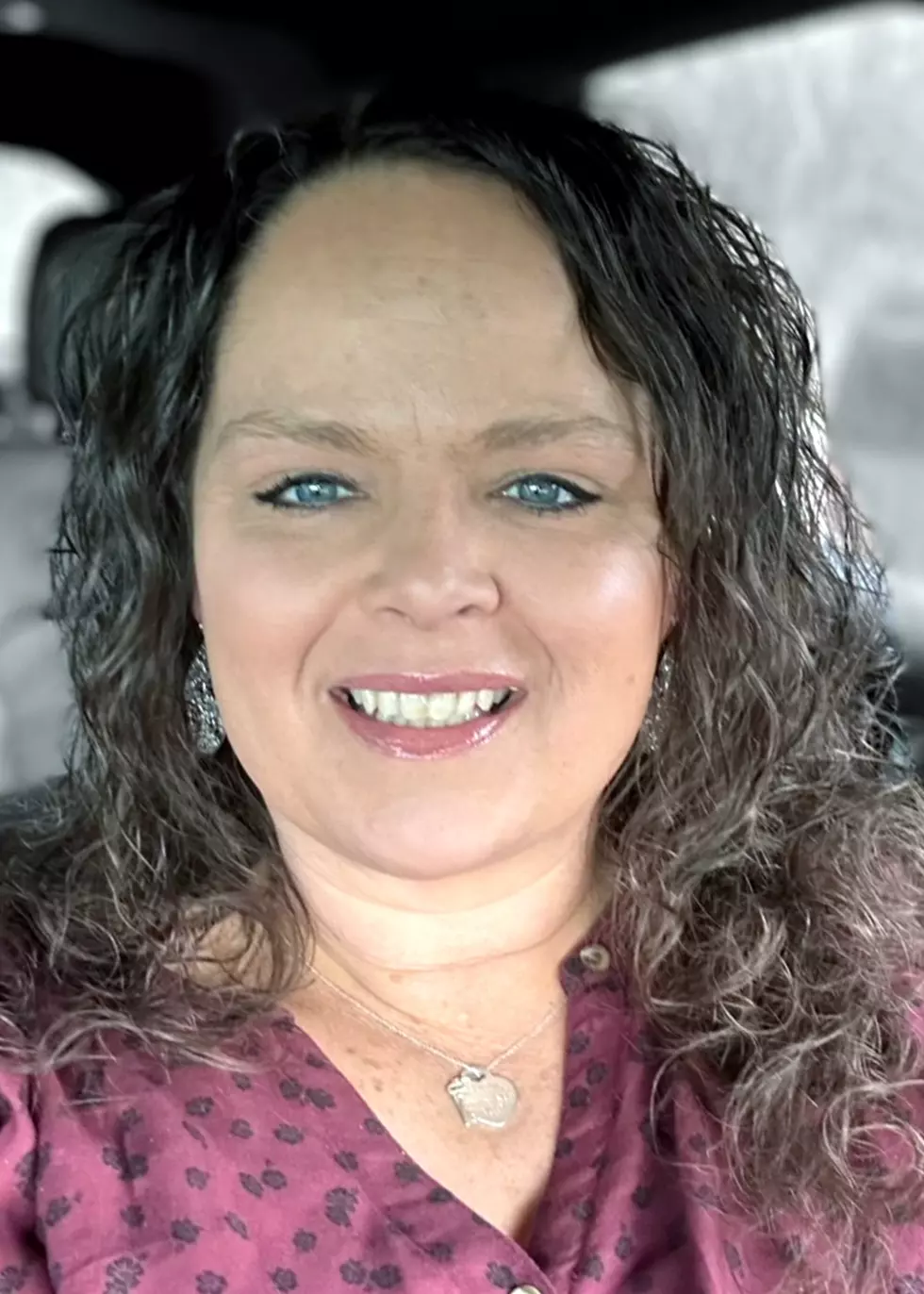
Missouri National Guard Increases Diversity
Courtesy of flickr/Missouri National Guard IMG 0568
JEFFERSON CITY, Mo. - The Missouri National Guard has experienced a 25 percent growth in minority personnel over the past year due to a concerted recruiting and retention effort spearheaded by the Adjutant General.
Increasing the organization's diversity through a combination of attracting minority Soldiers and creating a command climate encouraging retention has been a major Guard focus during the past six years, said Maj. Gen. Stephen Danner.
"We want an organization that includes diverse ways of thinking and ranges of experience," Danner said. "We've worked tirelessly, at all levels of the organization, to ensure that we are providing equal opportunities for growth and advancement across the Missouri Guard. A 25 percent growth in a one-year period is a significant positive step."
The Guard's 25 percent minority growth is an increase of 188 Soldiers, from 752 to 940 minority personnel, said Col. David Boyle, chief of staff for the Missouri Army National Guard.
"Increasing by 188 Soldiers may not sound like a large number, but in a historically underrepresented organization where positive culture change is occurring, the 25 percent increase is a considerable improvement," said Boyle. "These 940 Soldiers can sense the organizations diversity commitment. They see their peers and know they are no longer alone. They see role models and opportunity in increased senior leader diversity. In the end, they see an organization where they belong and can personally thrive."
The Missouri National Guard is currently at a record 110 percent authorized strength, said Boyle.
"We are an organization that good people want to be a part of," Boyle said. "When the National Guard became an operational, rather than strategic reserve, there were many who thought this would hurt our recruiting and retention. Instead, we've found our Soldiers are motivated and want to support their state and federal missions."
In the past 15 years, more than 20,000 Missouri Guardsmen have deployed in support of overseas contingency operations. During that same period, more than 13,000 have mobilized for emergency response missions in the United States.
That high level of missions means the force must maintain a high level of readiness at all times.
"Unit level personnel readiness is our number one priority. Strength is a special readiness precursor, but diverse strength is the key," said Boyle. "Diversity expands viewpoints, facilitates creativity, deters negative prejudicial based behaviors, demonstrates concern for personnel, and ultimately, increases the organization's productivity."
Diversity and empowering the diverse force were essential in our 'Culture of Readiness' transformation, said Boyle.
"Missouri's readiness improvement is clear. In the last five years, we've moved from middle-of-the-pack to the peak with a national ranking of second in combined strength and unit personnel readiness," said Boyle. "I believe the Missouri National Guard's diversity growth, paralleling strength and readiness improvements, is not a coincidence."
Assistant Adjutant General of Maneuver, Brig. Gen. Greg Mason said, "Diversity improves the effectiveness of many organizations and the Guard is no different."
Mason, an African American, is the most senior-ranking minority Soldier in the Missouri Guard. He has been a general officer since 2011 and has served as the task force commander during several state emergency missions.
"When we have Soldiers from the different communities we serve, it makes us more effective, especially during state missions when it is important to understand the citizens we are supporting," said Mason. "While serving in a crisis, we often have Soldiers from the community who know the area and are familiar faces to those in need. It is important that America's National Guard reflects every community in America."
Having a National Guard that mirrors its community's diversity is a top priority in the Missouri National Guard, according to Equal Opportunity Officer Maj. Deborah Smith.
"It is important for our community to see civil servants who look like them," Smith said, "And it is just as important for us to integrate a spectrum of different identities, backgrounds, and experiences into our Guard to make us a better force from within."
Although the Guard still has plenty of room to grow, the numbers reflect that the organization is moving in the right direction, Smith said. One way the Guard can keep moving forward is to capitalize on its role as a community-based organization to attract the best and the brightest from across the state.
"I've learned since being here that a lot of our diversity efforts center around community outreach programs," she said. "We are reaching into historically black colleges and universities, tribal colleges, and Native American and pacific islander institutions to say that 'Here are some opportunities the Guard has for you,' where we may have not been actively seeking involvement before."
Recruiting alone isn't enough though, Smith said. The Guard must establish a climate that encourages growth and maximizes opportunities for Soldiers to ensure they reenlist.
"Every quarter or so, the state diversity council holds meetings to assess our command climate and look at what we could be doing better as an organization," Smith said. "We are also working with civil and legislative leaders, including the state black caucus and Hispanic caucuses."
Ensuring that processes are transparent and fair is one way the organization has worked from the top down to encourage retention efforts, said State Command Sgt. Maj. Will Pierce.
"We implemented the automated Enlisted Promotion System in 2012 as a more objective way to evaluate performance and determine individuals with the most potential for increased responsibility," said Pierce. "It's not the old days when promotions were often based upon recommendations and who you knew. The current system really took away any built in biases. A Soldier's record of performance determines his or her advancement."
In the last 24 months, the Missouri National Guard selected two minority Soldiers to become command sergeants major, the most senior enlisted rank available.
"I am proud of the progress we are making as an organization and look forward to continuing the transparent process of promotion that keeps quality individuals in our ranks," said Pierce.
Community outreach is a key to successfully attracting recruits who reflect the state's diversity, Smith said. That has been the experience of the state's top recruiter, Sgt. 1st Class Michael Redding.
In 2014, Redding enlisted 51 new Soldiers into the Missouri National Guard. Redding works in south St. Louis, where minority racial demographics make up 36 percent more of the population than minority demographics for the state of Missouri, according to the 2013 U.S. Census. According to Redding, between 85 and 90 percent of his recruits identify as racial minorities, more than double the number of minority recruits it would take to mirror St. Louis area demographics.
Fellow recruiter Sgt. 1st Class Dan Thompson said successful recruiters like Redding could only succeed by finding the most motivated people in the communities in their recruiting districts.
"Our recruiters don't actively seek out one demographic more than another," Thompson said. "It's hard enough to find people interested in joining, and of those only a fraction are medically and legally qualified to enlist, so we really cannot and will not narrow that pool by targeting one potential enlistee over another."
Community engagement is key, Redding said. He builds his pool of candidates by working with guidance counselors and high school staff to target students who have already expressed an interest in joining the National Guard.
"We simplify our job by targeting the students who are mostly likely to want to join and also most likely to succeed in that endeavor," Redding said. "Juniors and seniors interested in joining will take the ASVAB - the Armed Services Vocational Aptitude Battery. Then, when the guidance counselors give them their scores, they also give them a list of the jobs and opportunities they are qualified for, along with our business card."
At that point, Redding begins to identify which candidates in that pool of students are medically and legally able to enlist into the military.
Redding, who grew up in St. Louis, actively makes himself a part of his community.
"When you make yourself present in the schools, present at the football games, present in the community, people trust you, and we take that trust very seriously."
For Redding, there is no trick of the trade. His recruitment success comes down to his personal investments.
"It's working with people. We stick with our recruits and help them sort out their issues-admin, personal, or otherwise-even after they are out of training and moving on to their units," Redding said. "When you can help to mold a new Soldier's experience into an extremely positive one, that Soldier will pass it along to everyone they come in contact with, whether they're wearing the uniform or not."
That was how Pfc. Devin Rankin-Wilson came to the Guard. He was encouraged to join by a former Ladue High School classmate he saw in uniform.
"I said, 'Man, how was it?' He told me he was happy he had joined and said it was worth it and we got to talking and I decided to join too," Rankin-Wilson said. "When I saw the military I saw a place I can grow and move forward."
Rankin-Wilson began basic training near the end of January and joined to become a wheeled vehicle mechanic.
"I've always been interested in mechanics, and I don't really know if I want to go to college yet. So, doing this I can develop myself professionally without necessarily doing more school right now," he added.
Redding is most passionate about his area for the reasons his recruits decide to join.
"In other cities, in college towns you find a lot of people joining for benefits packages like tuition assistance or medical benefits," Redding said. "Here, we find that what we're really selling these kids on is the National Guard itself, the sense of pride and belonging that comes with wearing this uniform, not what it can do for them."
Pfc. Yolanda Garcia enlisted into the guard as a food service specialist for exactly that reason. Garcia was a JROTC cadet at Cleveland Junior Naval Academy before she joined.
"I had some students in my classes who had been through basic training and were back for split-option, so I talked to them about it," Garcia said. "I think being in the Army is big, and people respect people who are in the Army. I enjoy it."
Garcia is a recent graduate from individual entry training and is still getting acquainted with her unit.
"I definitely still go to my recruiters when I have an issue," Garcia said. "I like that they stick around. It makes the transition simpler; I'm still figuring things out, and they're a really big help."
Smith reiterated the benefits of a diverse force of Soldiers and Airmen.
"A diverse organization is a more effective organization. Diversity is our strength because each individual brings a unique background, education and experience," said Smith. "Our differences make us a better team and stronger force."
(Courtesy of Missouri National Guard)
More From AM 1050 KSIS





![National Guard’s 1-135th Attack Reconnaissance Battalion Returns Home to Warrensburg [PHOTOS]](http://townsquare.media/site/468/files/2014/02/Welcome-Home-I-135th-Edited-0071.jpg?w=980&q=75)


